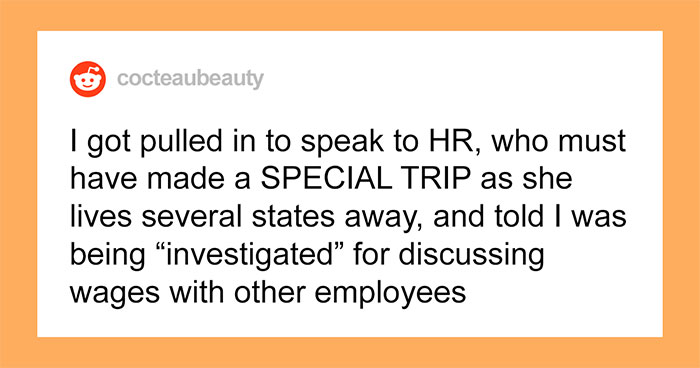
Management Bites Their Tongue When They Realize Employee Knows It’s Illegal To Have A Policy Against Discussing Wages
InterviewUnder the National Labor Relations Act (NLRA or the Act), we as employees have the right to communicate with fellow colleagues about our wages. We may discuss our salaries in face-to-face conversations and written messages. However, employers are often less than happy with this scenario. There are still many workplaces that will go as far as to repress any possible discussion about wages occurring among their workers.
This is what happened to one employee at a busy clinic. The author of the story who goes by the handle Cocteaubeauty shared how she got pulled in by her manager to speak to HR. “I was told I was being ‘investigated’ for discussing wages with my other employees,” she wrote in a post on the Antiwork subreddit.
But the author was not willing to sit there and swallow the interrogation she knew was against the law. So she stood up for herself and called them out. Scroll down through the whole story below which shows how knowing your rights and not taking things for granted is something we should all practice more often.
Recently, an employee at a busy clinic shared how she got pulled in by her manager to speak to HR for discussing wages with colleagues

Image credits: Tima Miroshnichenko (not the actual photo)
Bored Panda reached out to the author of this story, who wished to remain anonymous, to find out more about what happened. “My first reaction, because we all work in a state of at-will employment where we can be fired or quit for any reason, is, am I going to be fired right now? It gives you a feeling of dread not knowing if it’s a minor thing like a time clock punch mistake, or a fireable offense,” she told us. It turns out that the incident ended with management profusely apologizing to her, “and I got the letter I asked for documenting the incident and company policy,” she added.
The author also said that every non-union job she has ever worked has always put pressure on the employees not to discuss wages. “When I was younger, I didn’t know that was illegal. That’s why now, as an adult, I was so quick to get documentation of the incident to protect myself.”
“I feel like a lot of employers discourage employees from talking about wages because it hurts their bottom line. If an employee who has worked at a company for five years finds out the new hire is making more money with less total experience, they’re going to realize their employer has been short changing their wages,” the author told us.
Later, the author added an update
Image credits: cocteaubeauty
The Redditor argues that it’s troubling because it creates an environment where we are expected not to question authority, and where we are not meant to trust our fellow employees. “I think not sharing wages pits us against each other and makes the promise of a higher wage seem like a carrot being dangled on a stick—we all are led to believe our wages are tied to our productivity and that’s why we shouldn’t share them, because the other person might ‘work harder.’ The truth is, wages are largely tied to market fluctuations.” The author concluded by saying that everyone should “know your worth as a worker, and join a union whenever you can, even the worst union in the world is better than none at all.”
There is a common misconception among employees that you cannot discuss your pay with others. In fact, employees’ right to discuss their salary is protected by law. However, some employers may try to restrict workers from discussing their salary in front of customers or during work, but that doesn’t mean they can legally prohibit employees from talking about pay on their own time.
Section 7 of the National Labor Relations Act (NLRA) prohibited employers from limiting employees’ activities related to “collective bargaining or other mutual aid or protection.” The National Labor Relations Board (NLRB), the body charged with enforcing the NLRA, has interpreted Section 7 to mean that employees have a right to discuss salary and wages. Moreover, The NLRA applies to virtually all private-sector employers, only exempting federal, state, and local governments, employers subject to the Railway Labor Act, and those who only employ agricultural workers.
And this is what people had to say about this whole incident
1.1Mviews
Share on FacebookAh yes the American dream, the person who exploits the most people wins.
I actually know of an illegal policy at my job. They have it on there if you quit without 2 weeks notice the company will withhold your last pay cheque. That's against labour laws in my region. They have to pay you for the work you put in, regardless. At least here they do.
That's illegal in the US. A company cannot withhold your paycheck here.
Load More Replies...Americans sure hate unions, though. Endless acknowledgment of rampant abuse by companies, but, "unions are bad." 🙄
We don't hate unions. We hate the corruption and laziness of tenured workers it breeds. Crane operators at the port of L.A. are a perfect example.
Load More Replies...Ah yes the American dream, the person who exploits the most people wins.
I actually know of an illegal policy at my job. They have it on there if you quit without 2 weeks notice the company will withhold your last pay cheque. That's against labour laws in my region. They have to pay you for the work you put in, regardless. At least here they do.
That's illegal in the US. A company cannot withhold your paycheck here.
Load More Replies...Americans sure hate unions, though. Endless acknowledgment of rampant abuse by companies, but, "unions are bad." 🙄
We don't hate unions. We hate the corruption and laziness of tenured workers it breeds. Crane operators at the port of L.A. are a perfect example.
Load More Replies...
 Dark Mode
Dark Mode 

 No fees, cancel anytime
No fees, cancel anytime 


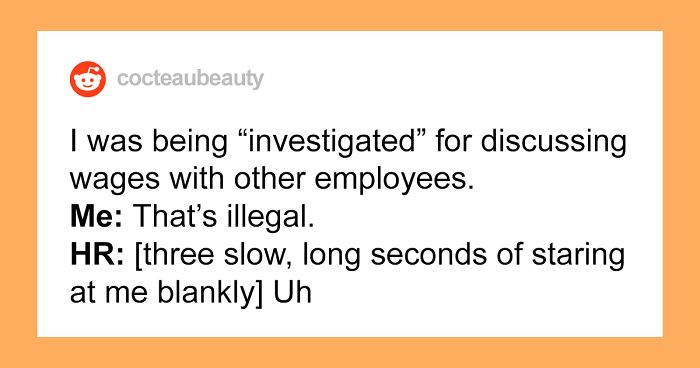









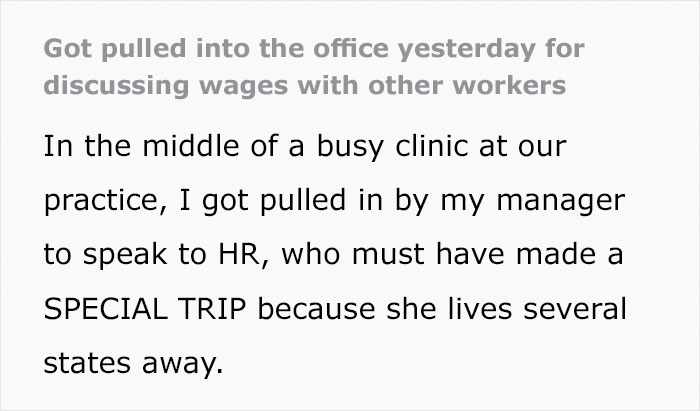
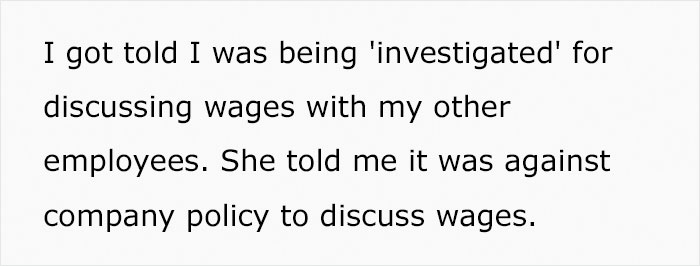

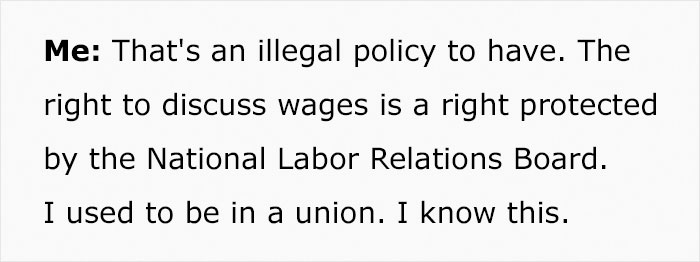
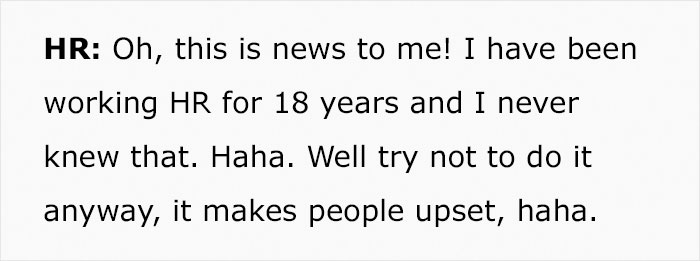

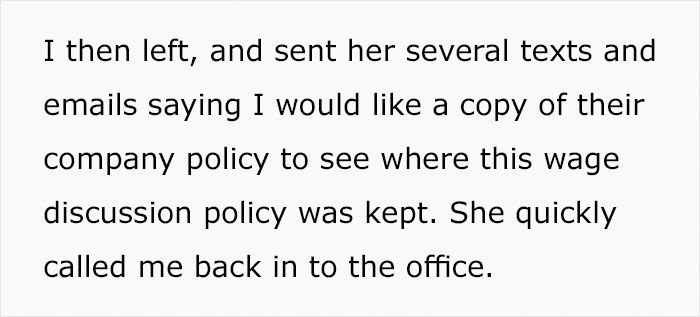
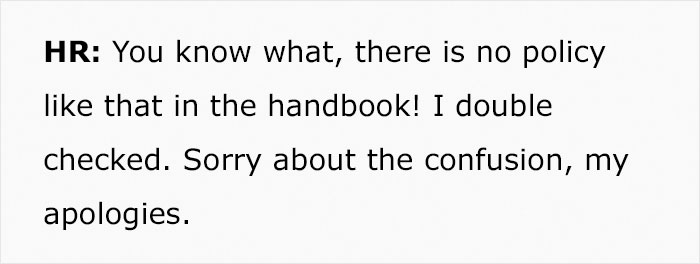





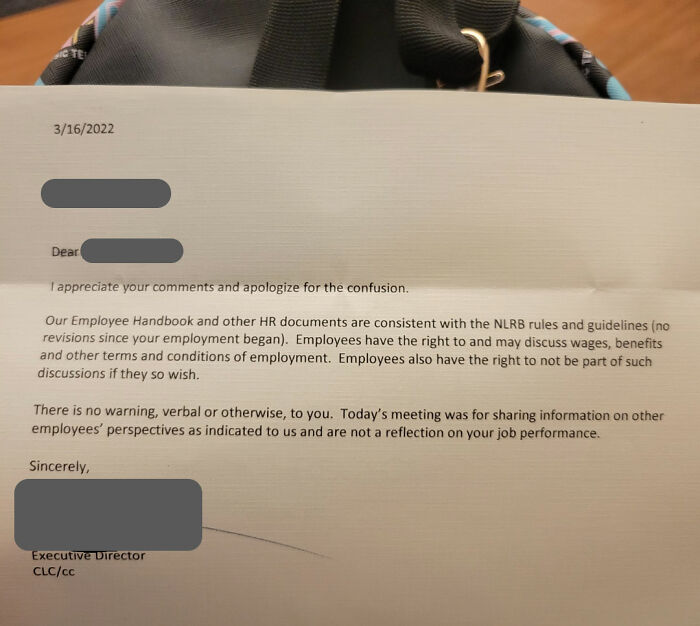
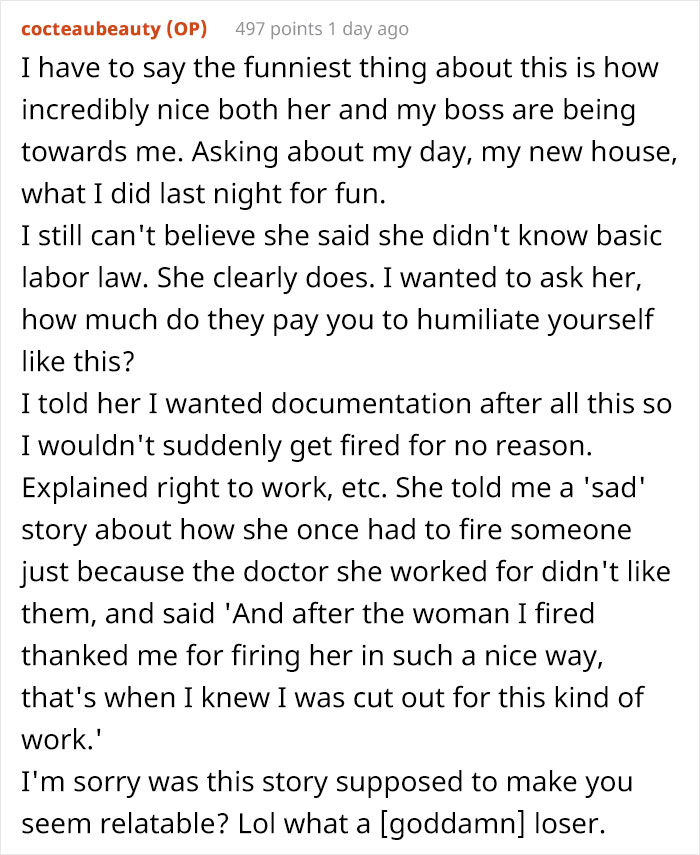
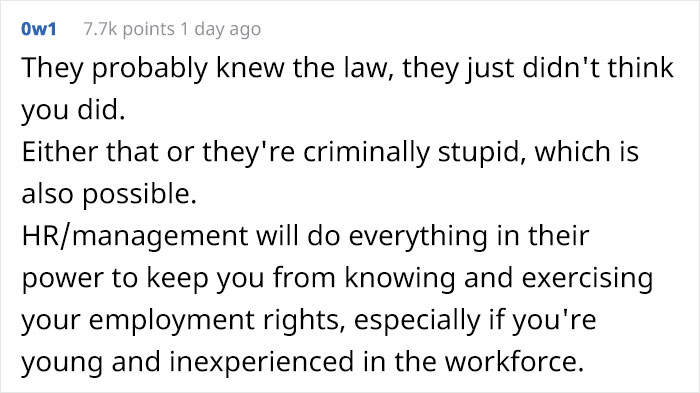

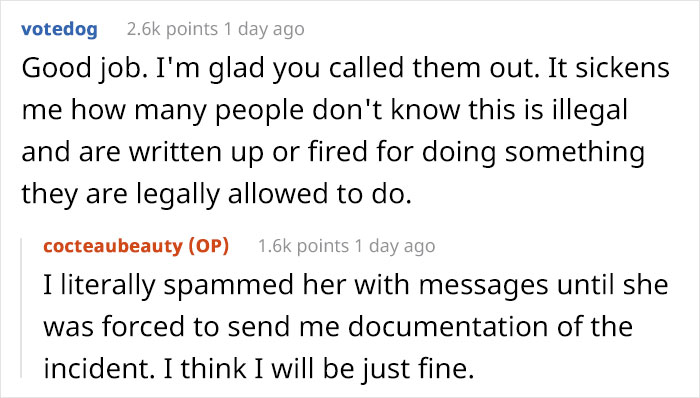

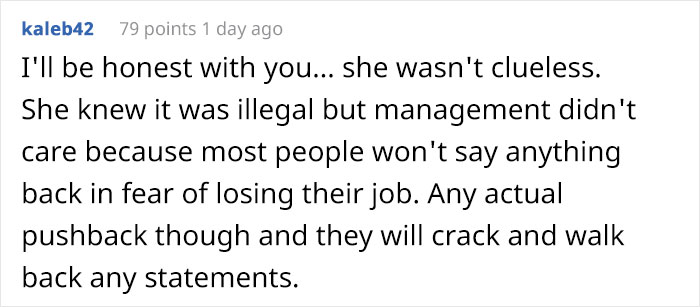
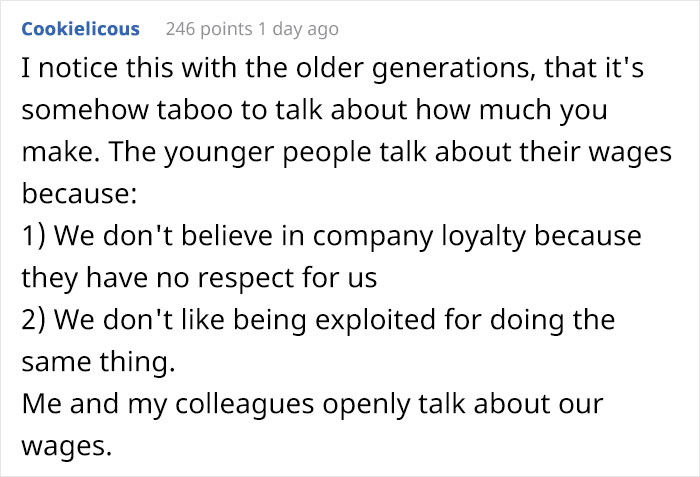
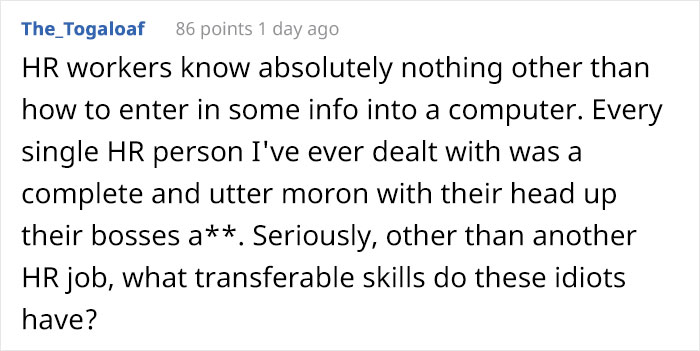

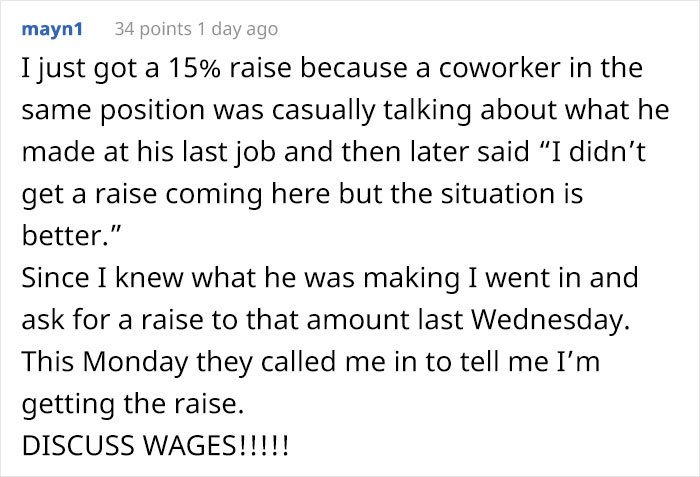
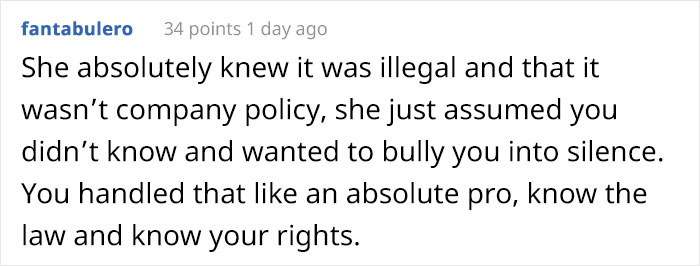





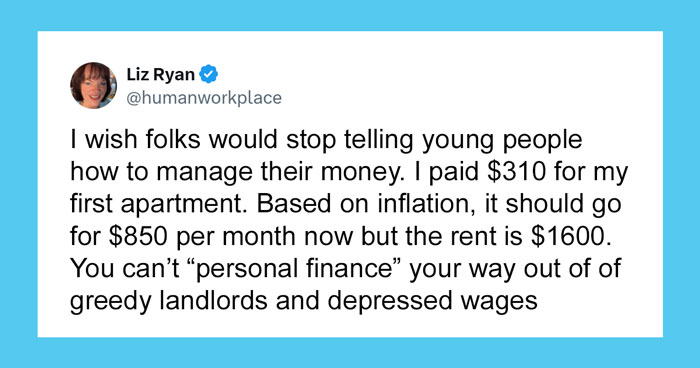


















128
48